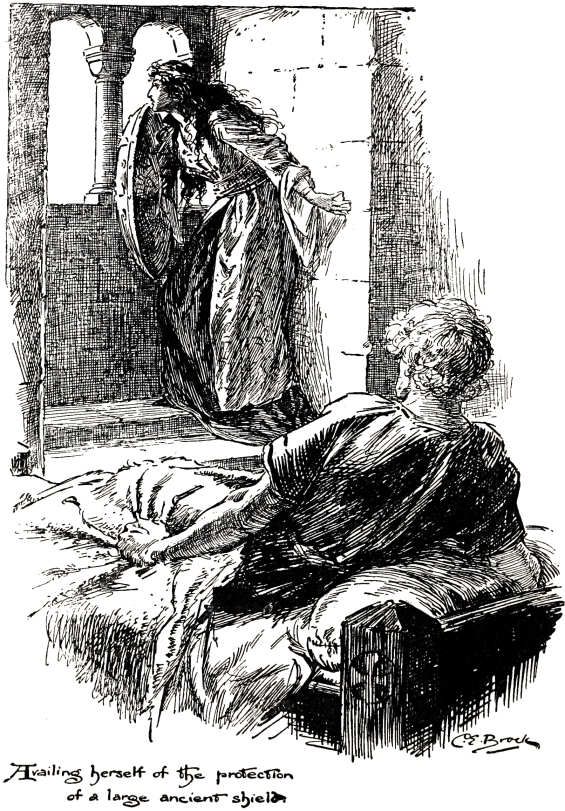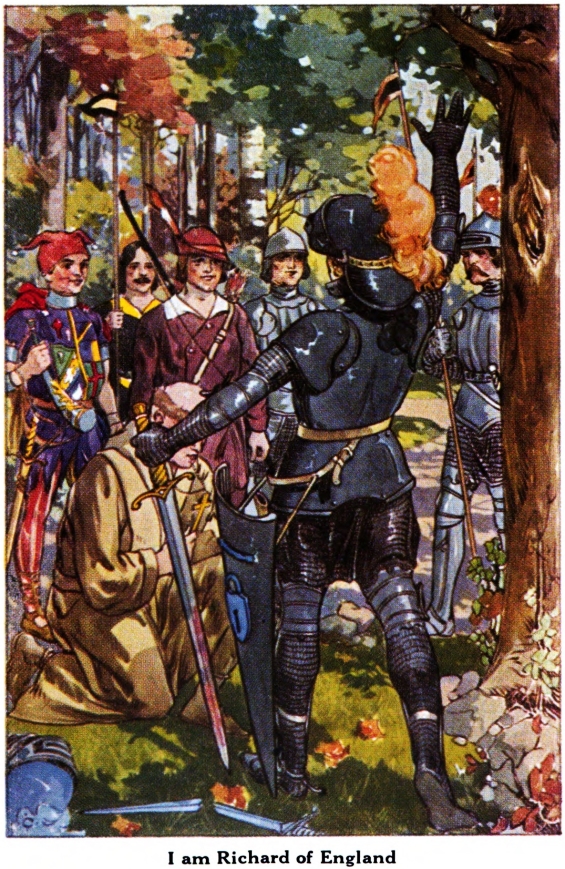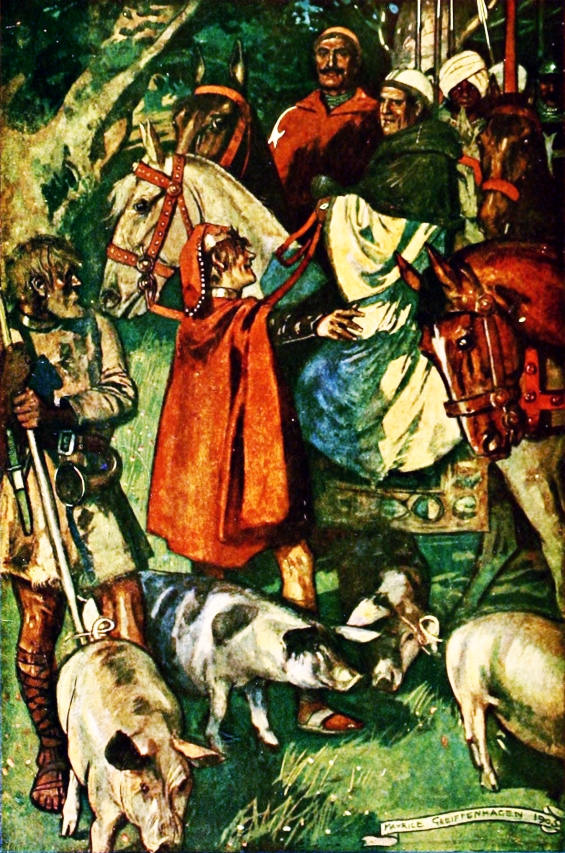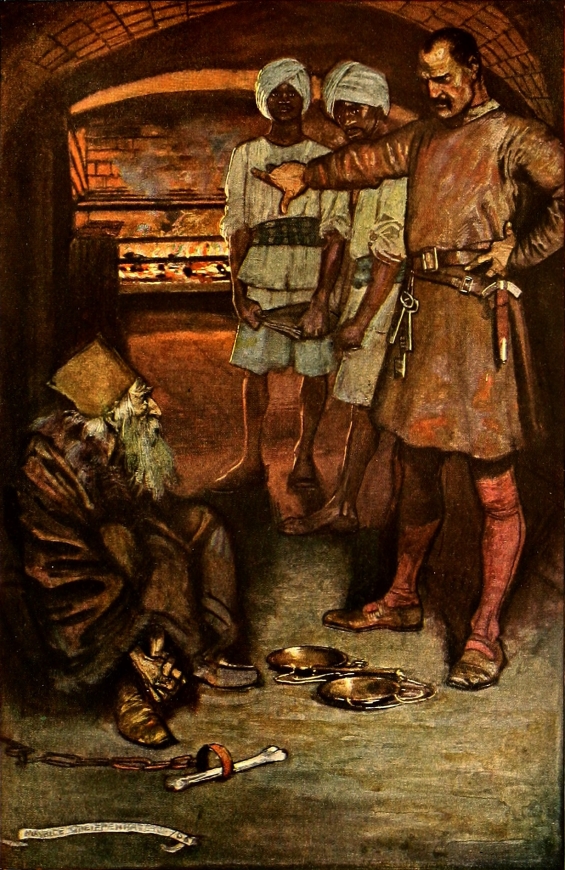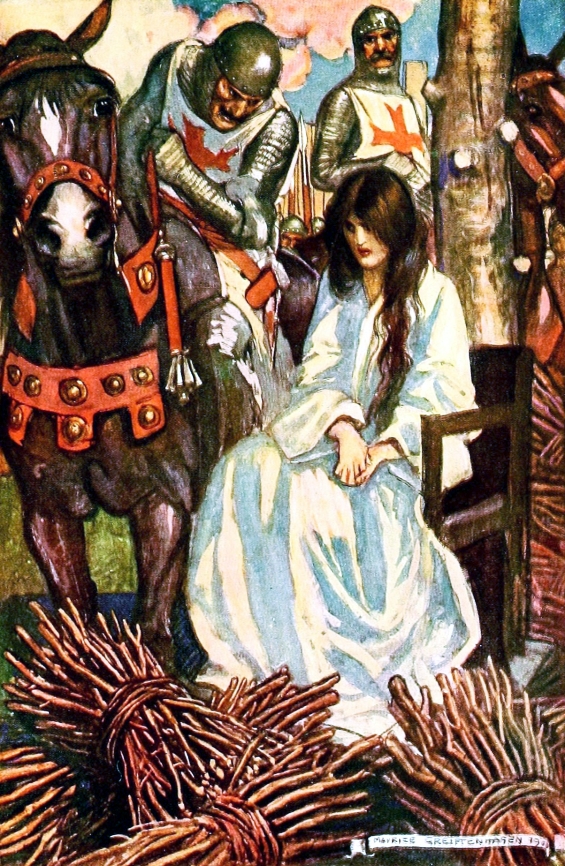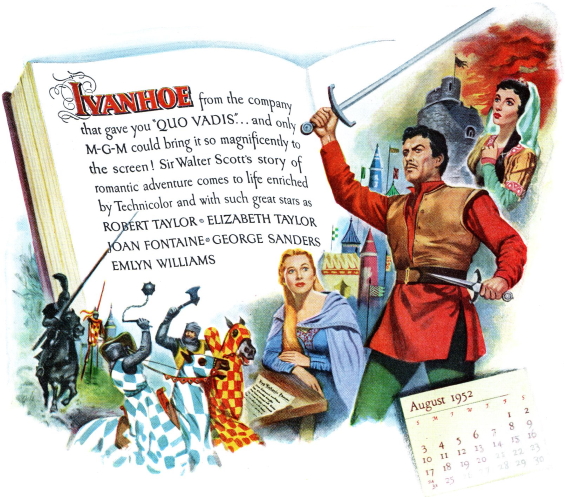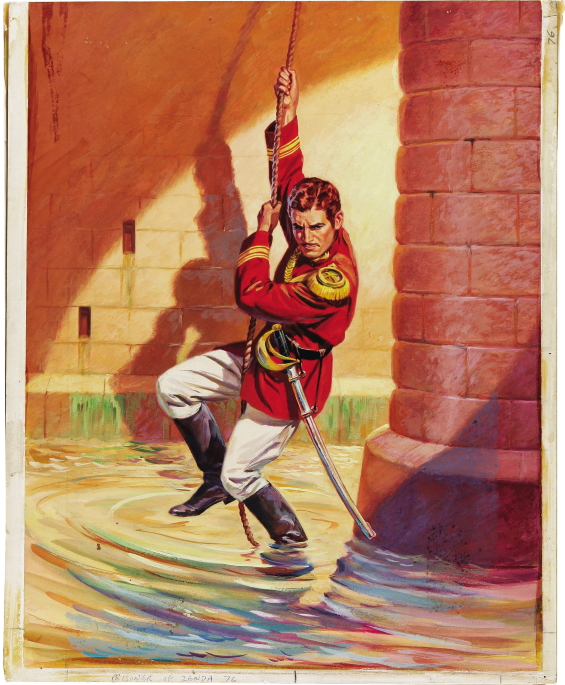
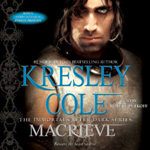 Macrieve (Immortals After Dark #13)
Macrieve (Immortals After Dark #13)
By Kresley Cole; Narrated by Robert Petkoff
Publisher: Simon & Schuster Audio
Publication Date: July 2013
[UNABRIDGED] – 13 hours, 51 minutes
Themes: / fantasy / werewolves / romance /
Publisher summary:
Uilleam MacRieve, a centuries-old Lykae warrior, was captured, caged, and experimented on by a shadowy human order, along with other immortals. During a prison break that devolved into one of the bloodiest massacres in recent history, he escapes. But the aftermath of his unspeakable torture preys on his damaged mind, while the wolf inside him roars for vengeance and carnage. In the days leading up to the full moon, can MacRieve rein in his beast, even when he encounters his mate – a vexingly impossible female unlike anything he’d ever dreamed for himself?
MacRieve is quite a bit different than the other Immortals After Dark series. Uilleam MacRieve is a Lykae, a werewolf with a twin brother, Munroe. He finds his eternal Mate in the form of Chloe Todd, daughter of Preston Webb. Webb is the Commander of the Order, a group of humans striving to contain and study those creatures know as the Lore. It doesn’t feel as essential to the overarching story as the other books, but if you enjoy the series, it was an OK entry, although Chloe is pretty great.
SPOILERS AHEAD!
What makes this different from the other books in the series is a focus on sexual violence and abuse. Uilleam was raped repeatedly by a Succubus for years, and the book actually starts during one of these later sexual encounters. The Succubus had claimed to be his Mate, and started molesting him when he was nine, grooming the child so that he didn’t recognize it as abuse. His mother found out and went to confront her, only to be slain by one of the Succubus’ other lover, a Vampire. His father soon followed, leaving Uilleam and Munroe alone.
Chloe is an Olympic-level soccer player, focused on her career path. Her father is busy as a military consultant but supportive until she begins to notice some changes in her body, like super-hearing and sensitivity to touch. He abandons her with only a book on the Lore as a clue to the changes she’s experiencing. Chloe is captured by a group of Witches and auctioned off to the highest bidder. Most of the Lore shows up, eager to use and abuse her as a lure for her father, whom she discovers is not the retired consultant she thought, but the mastermind behind the Order.
Rape is brought up repeatedly to Chloe, as everyone points out that the Pravus army would gang-rape her as revenge for her father’s crusade against the Lore. She discovers she’s half-Succubus after a sexual encounter with Uilleam, and he repeatedly verbally abuses her about her sexual hunger. Uilleam struggles with the scars of his childhood abuse, but the Beast inside him loves Chloe. He even vomits after the first time they have sex, as it dredges up memories of the Succubus who raped him. Overall, this book tackles child abuse, rape, and emotional abuse more than the other books, but it can be pretty uncomfortable to have those episodes interspersed with some rather complicated sexual scenes. Cole does address childhood sexual abuse with an understanding hand, however, so if you can handle it, the book can be rewarding. Chloe is one of her best female characters, strong and brave with amazing attitude. She might be worth wading through the unsavory parts, even if there is a heavy dose of “I’m not like those dumb girly-girls” in both her thoughts and how she’s described.
The narrator does an amazing job, slipping between a neutral and Scottish accents for the werewolves. His voice goes up slightly for Chloe, but otherwise he has a warm, enthusiastic tone throughout.
Posted by Sarah R.
 The Kingmakers (Vampire Empire #3)
The Kingmakers (Vampire Empire #3)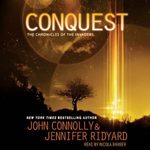 Conquest (Chronicles of the Invaders #1)
Conquest (Chronicles of the Invaders #1)


